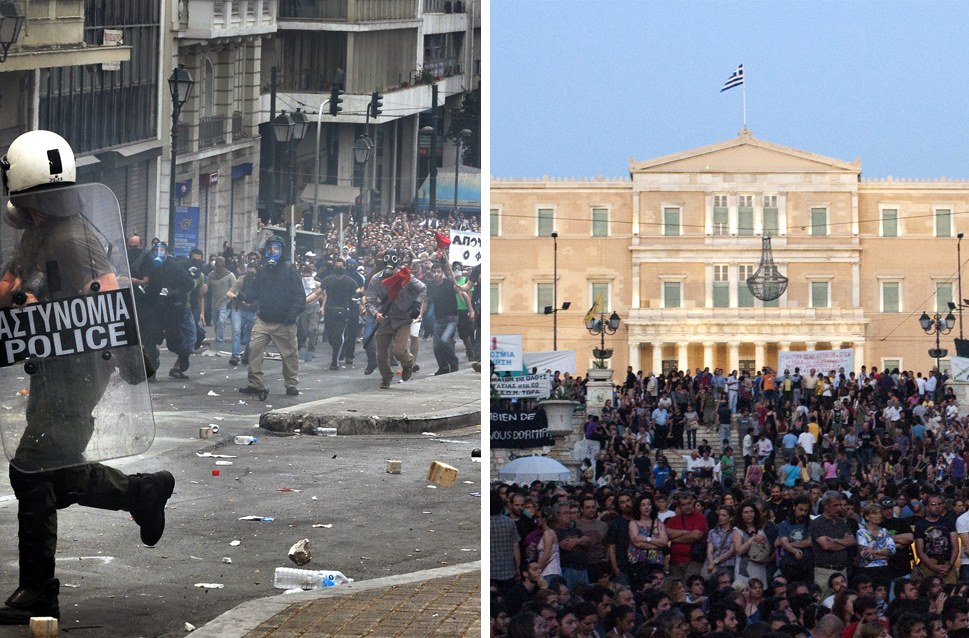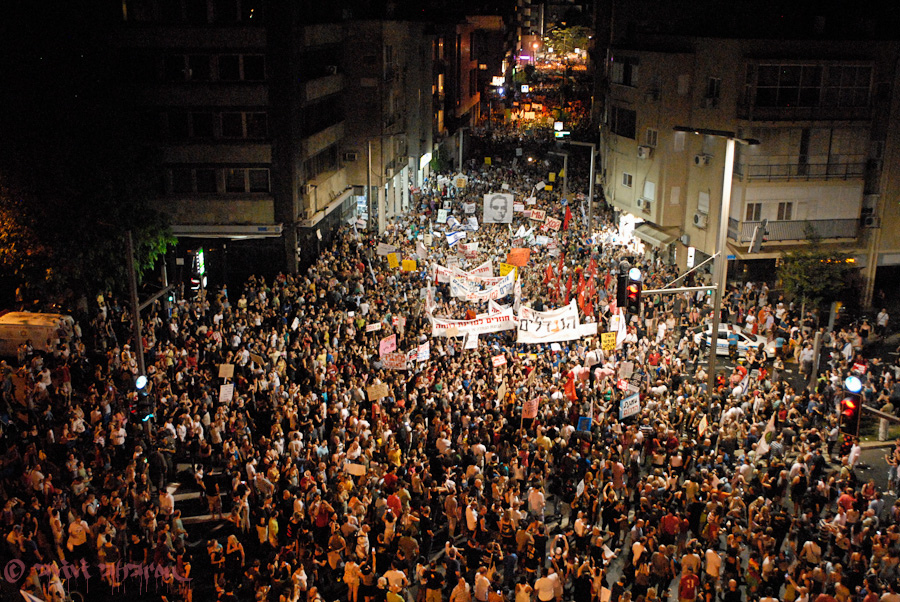|
Indignados
The anti-austerity movement in Spain, also referred to as the 15-M Movement (Spanish: ''Movimiento 15-M''), and the Indignados Movement, was a series of protests, demonstrations, and occupations against austerity policies in Spain that began around the local and regional elections of 2011 and 2012. First starting on 15 May 2011, many of the subsequent demonstrations spread through various social networks such as Real Democracy NOW ( es, link=no, Democracia Real YA) and Youth Without a Future ( es, link=no, Juventud Sin Futuro). Spanish media related the movement to the 2008–14 Spanish financial crisis, the Arab Spring, as well as demonstrations in North Africa, Iran, Greece, Portugal, and Iceland. The movement was also compared to Stéphane Hessel's political manifesto ''Time for Outrage!,'' which was seen to empower Spanish youth who were not in school, training, or employment. Protestors rallied against high unemployment rates, welfare cuts, politicians, and the two-party ... [...More Info...] [...Related Items...] OR: [Wikipedia] [Google] [Baidu] |
Anti-austerity Protests In Greece
The anti-austerity movement in Greece involved a series of demonstrations and general strikes that took place across the country. The events, which began on 5 May 2010, were provoked by plans to cut public spending and raise taxes as austerity measures in exchange for a bail-out, aimed at solving the Greek government-debt crisis. Three people were killed on 5 May in one of the largest demonstrations in Greece since 1973. On , anti-austerity activists organised by the Direct Democracy Now! movement, known as the Indignant Citizens Movement ( el, Κίνημα Αγανακτισμένων Πολιτών, ''Kínima Aganaktisménon-Politón''), started demonstrating in major cities across Greece. This second wave of demonstrations proved different from the years before in that they were not partisan and began through peaceful means. Some of the events later turned violent, particularly in the capital city of Athens. Inspired by the anti-austerity protests in Spain, these demonst ... [...More Info...] [...Related Items...] OR: [Wikipedia] [Google] [Baidu] |
Occupation (protest)
As an act of protest, occupation is a strategy often used by social movements and other forms of collective social action in order to squat and hold public and symbolic spaces, buildings, critical infrastructure such as entrances to train stations, shopping centers, university buildings, squares, and parks. Opposed to a military occupation which attempts to subdue a conquered country, a protest occupation is a means to resist the status quo and advocate a change in public policy. Occupation attempts to use space as an instrument in order to achieve political and economic change, and to construct counter-spaces in which protesters express their desire to participate in the production and re-imagination of urban space. Often, this is connected to the right to the city, which is the right to inhabit and be in the city as well as to redefine the city in ways that challenge the demands of capitalist accumulation. That is to make public spaces more valuable to the citizens in contrast to ... [...More Info...] [...Related Items...] OR: [Wikipedia] [Google] [Baidu] |
Impact Of The Arab Spring
The impact of the Arab Spring concerns protests or by the way attempts to organize growing protest movements that were inspired by or similar to the Arab Spring in the Arab-majority states of North Africa and the Middle East, according to commentators, organisers, and critics. These demonstrations and protest efforts have all been critical of the government in their respective countries, though they have ranged from calls for the incumbent government to make certain policy changes to attempts to bring down the current political system in its entirety. In some countries, protests have become large or widespread enough to effect change at the national level, as in Armenia, while in others, such as Djibouti, were swiftly suppressed. Protests considered to be inspired by the Arab Spring have taken place on every inhabited continent, with varying degrees of success and prominence. On 15 October 2011, the subsidiary "Occupy" and Indignants movements inspired protests in 950 cities i ... [...More Info...] [...Related Items...] OR: [Wikipedia] [Google] [Baidu] |
Spain
, image_flag = Bandera de España.svg , image_coat = Escudo de España (mazonado).svg , national_motto = ''Plus ultra'' (Latin)(English: "Further Beyond") , national_anthem = (English: "Royal March") , image_map = , map_caption = , image_map2 = , capital = Madrid , coordinates = , largest_city = Madrid , languages_type = Official language , languages = Spanish language, Spanish , ethnic_groups = , ethnic_groups_year = , ethnic_groups_ref = , religion = , religion_ref = , religion_year = 2020 , demonym = , government_type = Unitary state, Unitary Parliamentary system, parliamentary constitutional monarchy , leader_title1 = Monarchy of Spain, Monarch , leader_name1 = Felipe VI , leader_title2 = Prime Minister of Spain ... [...More Info...] [...Related Items...] OR: [Wikipedia] [Google] [Baidu] |
Civil Resistance
Civil resistance is political action that relies on the use of nonviolent resistance by ordinary people to challenge a particular power, force, policy or regime. Civil resistance operates through appeals to the adversary, pressure and coercion: it can involve systematic attempts to undermine or expose the adversary's sources of power (or pillars of support, such as police, military, clergy, business elite, etc.). Forms of action have included demonstrations, vigils and petitions; strikes, go-slows, boycotts and emigration movements; and sit-ins, occupations, constructive program, and the creation of parallel institutions of government. Some civil resistance movements' motivations for avoiding violence are generally related to context, including a society's values and its experience of war and violence, rather than to any absolute ethical principle. Civil resistance cases can be found throughout history and in many modern struggles, against both tyrannical rulers and democratical ... [...More Info...] [...Related Items...] OR: [Wikipedia] [Google] [Baidu] |
Social Network
A social network is a social structure made up of a set of social actors (such as individuals or organizations), sets of dyadic ties, and other social interactions between actors. The social network perspective provides a set of methods for analyzing the structure of whole social entities as well as a variety of theories explaining the patterns observed in these structures. The study of these structures uses social network analysis to identify local and global patterns, locate influential entities, and examine network dynamics. Social networks and the analysis of them is an inherently interdisciplinary academic field which emerged from social psychology, sociology, statistics, and graph theory. Georg Simmel authored early structural theories in sociology emphasizing the dynamics of triads and "web of group affiliations". Jacob Moreno is credited with developing the first sociograms in the 1930s to study interpersonal relationships. These approaches were mathematically formalize ... [...More Info...] [...Related Items...] OR: [Wikipedia] [Google] [Baidu] |
Austerity
Austerity is a set of political-economic policies that aim to reduce government budget deficits through spending cuts, tax increases, or a combination of both. There are three primary types of austerity measures: higher taxes to fund spending, raising taxes while cutting spending, and lower taxes and lower government spending. Austerity measures are often used by governments that find it difficult to borrow or meet their existing obligations to pay back loans. The measures are meant to reduce the budget deficit by bringing government revenues closer to expenditures. Proponents of these measures state that this reduces the amount of borrowing required and may also demonstrate a government's fiscal discipline to creditors and credit rating agencies and make borrowing easier and cheaper as a result. In most macroeconomic models, austerity policies which reduce government spending lead to increased unemployment in the short term. These reductions in employment usually occur di ... [...More Info...] [...Related Items...] OR: [Wikipedia] [Google] [Baidu] |
Spanish Municipal Elections, 2011
The 2011 Spanish local elections were held on Sunday, 22 May 2011, to elect all 68,230 councillors in the 8,116 municipalities of Spain and all 1,040 seats in 38 Provincial deputation (Spain), provincial deputations. The elections were held simultaneously with 2011 Spanish regional elections, regional elections in thirteen Autonomous communities of Spain, autonomous communities, as well as local elections in the three Communities of chartered regime, foral deputations of the Basque Country (autonomous community), Basque Country and the eleven island councils in the Balearic Islands, Balearic and Canary Islands. The days before the elections were marked by the 2011 Spanish protests which had been held in different cities across Spain since 15 May. The elections resulted in a landslide victory for the opposition People's Party (Spain), People's Party (PP) and other centre-right parties, which won control of all of Spain's largest cities. In Barcelona, held by PSOE-sister party, the ... [...More Info...] [...Related Items...] OR: [Wikipedia] [Google] [Baidu] |
Spanish Regional Elections, 2011
The 2011 Spanish regional elections were held on Sunday, 22 May 2011, to elect the regional parliaments of thirteen of the seventeen autonomous communities—Aragon, Asturias, the Balearic Islands, the Canary Islands, Cantabria, Castile and León, Castilla–La Mancha, Extremadura, La Rioja, Madrid, Murcia, Navarre and the Valencian Community—, not including Andalusia, the Basque Country, Catalonia and Galicia, which had separate electoral cycles. 824 of 1,218 seats in the regional parliaments were up for election, as well as the 50 seats in the regional assemblies of Ceuta and Melilla. The elections were held simultaneously with local elections all throughout Spain. The week before the elections came dominated under the scope of the 15-M protests which had been held in different cities across Spain. The opposition People's Party (PP) won the elections in a landslide as the ruling Spanish Socialist Workers' Party (PSOE) lost all regional governments at stake—including Ext ... [...More Info...] [...Related Items...] OR: [Wikipedia] [Google] [Baidu] |
Arab Spring
The Arab Spring ( ar, الربيع العربي) was a series of Nonviolent resistance, anti-government protests, Rebellion, uprisings and Insurgency, armed rebellions that spread across much of the Arab world in the early 2010s. It began in Tunisian Revolution, Tunisia in response to corruption and economic stagnation. From Tunisia, the protests then spread to five other countries: Libya, Egypt, Yemen, Syria and Bahrain. Rulers were deposed (Zine El Abidine Ben Ali, Muammar Gaddafi, Hosni Mubarak, Ali Abdullah Saleh) or major uprisings and social violence occurred including riots, civil wars, or insurgencies. Sustained street demonstrations took place in Morocco, Iraq, Algeria, Lebanon, Jordan, Kuwait, Oman and Sudan. Minor protests took place in Djibouti, Mauritania, State of Palestine, Palestine, Saudi Arabia and the Southern Provinces, Moroccan-occupied Western Sahara. A major slogan of the demonstrators in the Arab world is ''Ash-shab yurid isqat an-nizam, ash-shaʻb yurīd ... [...More Info...] [...Related Items...] OR: [Wikipedia] [Google] [Baidu] |
Democracia Real Ya
''Democracia'' ( am, ዴሞክራሲያ, 'Democracy') is the organ of the Ethiopian People's Revolutionary Party. It was launched as a clandestine weekly newspaper in July 1974, as the Central Committee of the Ethiopian People's Liberation Organization (as the EPRP was known at the time) returned to Ethiopia from exile.Tiruneh, Andargachew. The Ethiopian Revolution 1974–1987 : a Transformation from an Aristocratic to a Totalitarian'. Cambridge: University of Cambridge, 1995. p. 75 At the time the EPRP was often known simply as the ''Democracia'' group, as the existence of the party was not publicly known.Tiruneh, Andargachew. The Ethiopian Revolution 1974–1987 : a Transformation from an Aristocratic to a Totalitarian'. Cambridge: University of Cambridge, 1995. p. 394 Overview ''Democracia'' quickly acquired a significant readership in the student and trade union movements. Along with its sister publication ''Abyot'' (which had become associated with EPRP), ''Democracia'' playe ... [...More Info...] [...Related Items...] OR: [Wikipedia] [Google] [Baidu] |







